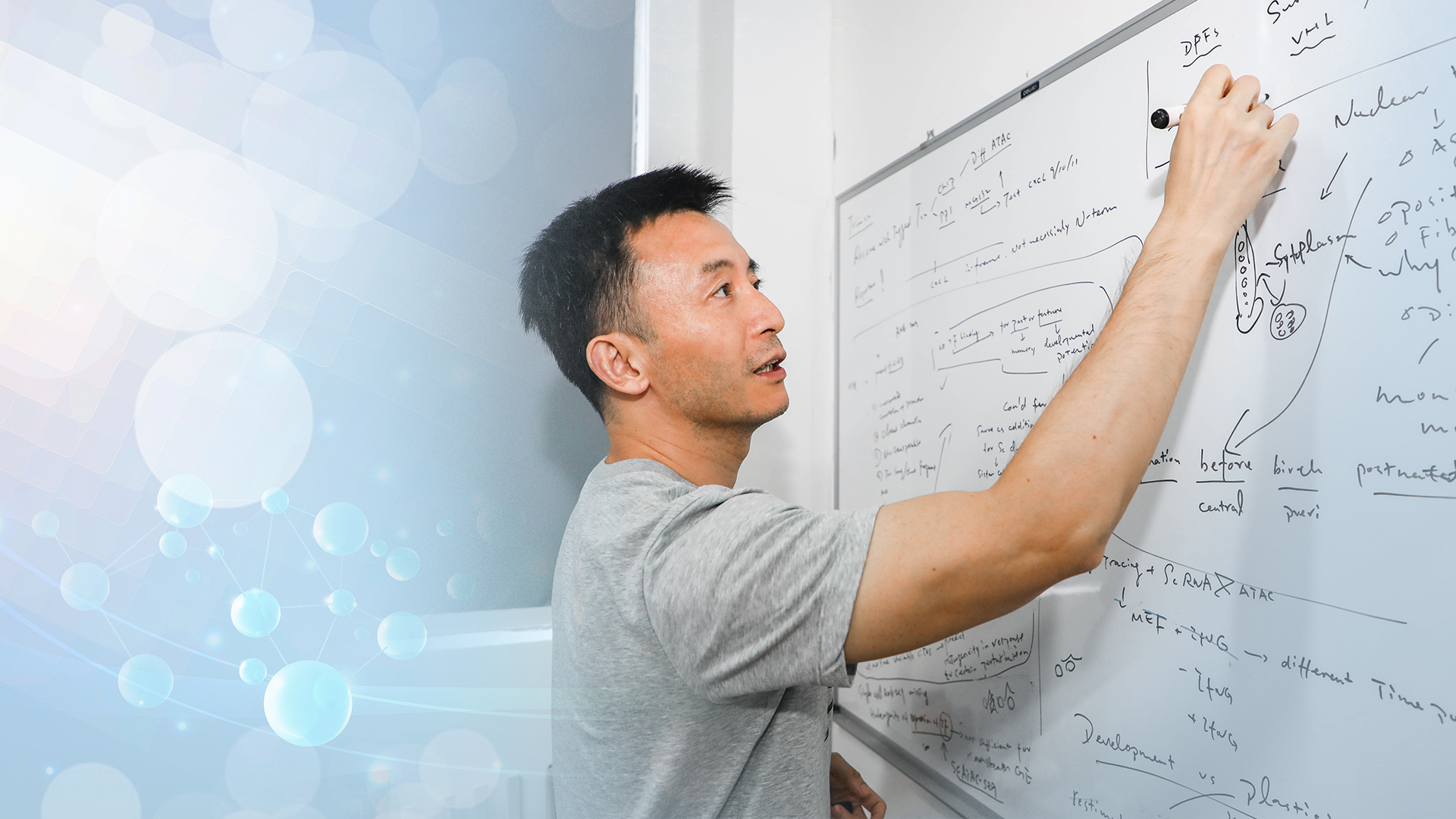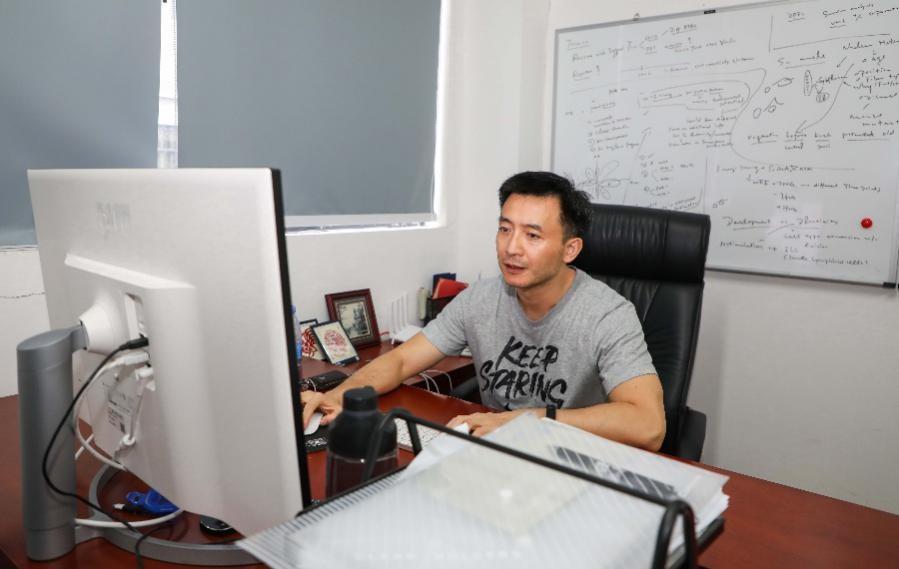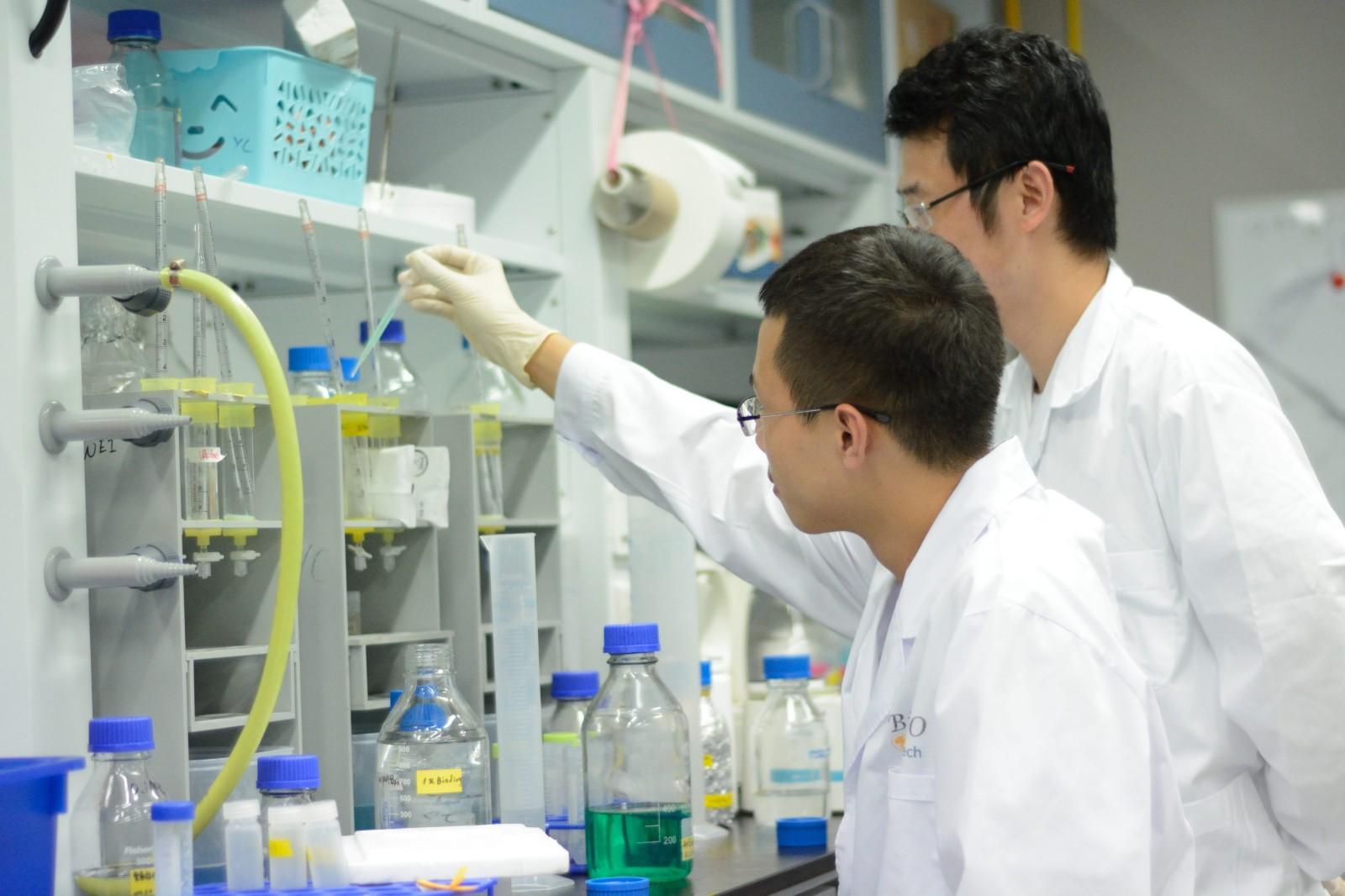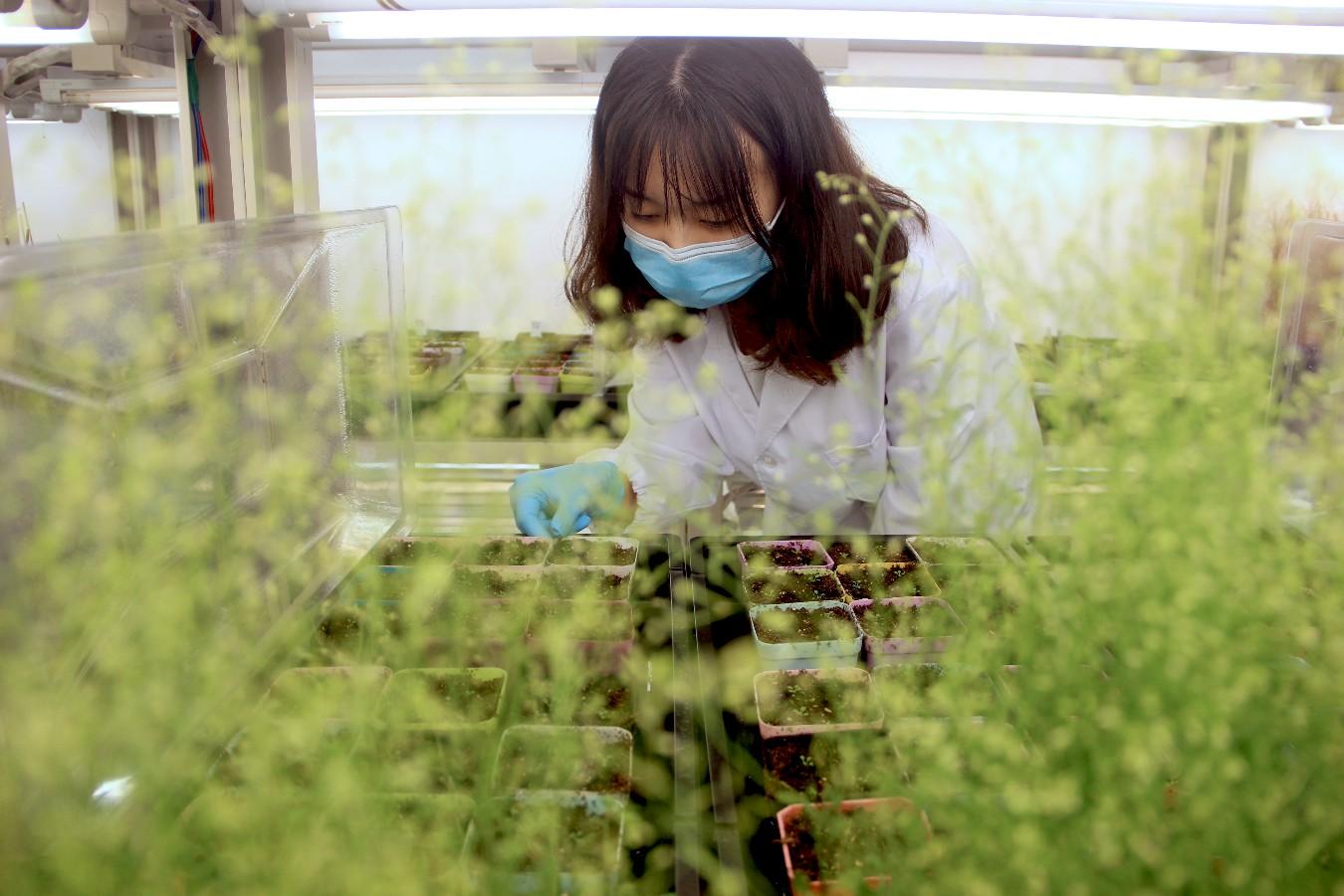Message from the Head – What’s next for life science at SUSTech
Chris Edwards 2020-09-16
Among all fields of the natural sciences, life science is fundamental to people’s lives and well-being. As society moves further into the 21st century, there are more areas ripe for future exploration.
With that in mind, the Department of Biology at Southern University of Science and Technology (SUSTech) has been a leader. It has been conducting cutting-edge scientific research as it develops into a world-class academic and research center in Shenzhen as one of the first departments at SUSTech.
With the opportunities arising in Shenzhen and across the Greater Bay Area, how can the Department of Biology further promote itself as a first-class discipline that trains world-class talents? The department head, Wei CHEN, provided an insight into the Department of Biology, the development of its academic discipline, its talent training modes, and its global outlook.

Biology head Wei CHEN was a professor at the Max Delbrück Center for Molecular Medicine and Charité – Universitätsmedizin Berlin (Charité Medical School) before coming to SUSTech. He has been engaged in systems biology and functional genomics research for 20 years, having published more than 140 papers in high-impact academic journals. His papers have been cited more than twenty thousand times, with an h-index over 62.
In April 2015, Wei CHEN visited SUSTech for the first time. He was enthralled by the vibrant campus, buzzing with energy from the students engaging with their educators. To his surprise, the instructional language was English. It was very different from his impression of most of the universities in China.
It was not just the innovative approach at SUSTech that surprised Wei CHEN, but the effervescent energy that bubbles throughout the streets of Shenzhen. In late April 2015, during his first visit to SUSTech, he was surprised to see people queuing to get on an already busy bus at 11 pm on a weeknight. The taxi driver told him that Shenzhen-ers are very hardworking. Seeing and understanding this, in combination with the lively campus culture and the energetic nightlife across Shenzhen, gave Wei CHEN a better outlook on the future of both Shenzhen and SUSTech.
The three spiritual pillars of research, innovation, and entrepreneurship, combined with its mission of exploring and developing a modern university system, allowed him to integrate into the SUSTech community quickly.

It was the experience in 2015 that drove him to return to China and bring his family to Shenzhen, the innovation hub of China. On his arrival in 2016, SUSTech was still in an early stage of development. Having returned to China, now was the perfect time to fulfill his aspirations of contributing to the nation. Wei CHEN moved quickly to create scientific research platforms that would support local, regional, and national scientific policy outcomes. His previous experience had given him a great sense of accomplishment, so being able to achieve similar outcomes for an emerging research university would be of greater significance.
As the head of the Department of Biology, he has taken a leading role in pushing the academic discipline forward in conjunction with the strategic needs of industry in Shenzhen and the Greater Bay Area. By fostering industry-university research with emerging entrepreneurial partners, Wei CHEN has cultivated an image of an internationally advanced teaching and research base. The nurturing of a high-end talent pipeline strives to develop high-impact scientific researchers that support talent training, team building, discipline development, and the transformation of technology.
The Department of Biology has focused on interdisciplinary research, allowing it to take an early lead in this field. They have incorporated mathematical and physics methodologies along with computer science modeling in their quest to develop their research further.

As a talented researcher, Wei CHEN highlighted the importance of interdisciplinary research. He said, “the Department of Biology regularly works across campus to carry out collaborative research on fundamental issues of science. We work together to bring our different disciplinary methods and perspectives to address a range of scientific problems. The level of cooperation is very high, which has seen us progress faster than I could ever hope for.”
As far as Wei CHEN is concerned, the development of a strong biology discipline cannot be done without a high-quality team of talent supporting it. They make up the direction of scientific development for the discipline while creating a high-quality academic culture that permeates the Department. He has focused on bringing in academic leaders with global influence to develop his team of faculty members.
“The talent pipeline of the Department of Biology is designed to develop high-quality scientific achievement. Our faculty members must be robust and focused on their research directions that support the strategic goals of the Department. This strategy can only be achieved by working with SUSTech and having similar development goals,” said Wei CHEN.
The Department of Biology has put together a high-quality teaching and research team of senior professors to lead the talent pipeline. Energetic associate and enthusiastic assistant professors support them. Every team member has international experience from top universities around the world. They form an energetic talent team that provides a vital link to the academic and scientific research community that has formed at the Department of Biology.
Wei CHEN has made a specific point of connecting the Department of Biology with the wider Shenzhen community. Their fundamental research progress has seen them collaborate with world-leading industrial partners such as BGI. These industry-university research partnerships are vital to the development of the Department of Biology.
The development speed of the Department of Biology has seen it approved for both masters and doctoral degrees, as well as postdoctoral research. The development of a full talent pipeline from undergraduate studies to postdoctoral research reflects positively on the efforts of Wei CHEN and his team. He pointed out that there are continuous opportunities for the Department of Biology to improve. They will spend the next five years getting better and working towards becoming a world-class biology department that supports Shenzhen’s biotechnology industry.
Even though Wei CHEN now spends more time as an administrator than as a researcher or an educator, he believes that he is, first and foremost, a teacher. It is his solemn duty to nurture transformative leaders for the next generation. The Department of Biology is working to require every teaching and research faculty member to teach undergraduate classes. It will provide undergraduate students exposure to Academicians, Fellows, experts, and other scholars from the beginning of their educational experience at SUSTech.
Wei CHEN requires every member of the teaching and research talent team to involve undergraduate students in their research groups, and for those students to conduct scientific research. Wei CHEN is looking at creating an innovation challenge class that would provide students to concentrate on high-level scientific research.

Wei CHEN leads by example, through the inclusion of undergraduate students in his research group, along with masters, doctoral and postdoctoral researchers. While there are not many students at SUSTech, the resources on offer allow all students many opportunities to make significant progress. Every week, his research group comes together with every member expected to get involved in the discussions. Other groups across SUSTech have emulated such an approach, enhancing the opportunities for undergraduate research. Wei CHEN also takes laboratory members with him to conferences to give them a better understanding of their research field.
Based on his own experiences, he is convinced that students should take every opportunity to study or work in different cultural backgrounds. It is a fantastic way to consider their global and national contributions to the life sciences. There are also opportunities for students to experience culture variety. These are not just the social and human cultures they would experience walking around, but also include academic and scientific research cultures, but also new ways of thinking.
He is a firm believer in helping students find their passion. Two perfect examples of that are Juexiao ZHOU and Daqi DENG. Both of them graduated from Wei CHEN’s research group in 2020. Juexiao ZHOU is now starting his doctoral studies in bioinformatics at King Abdullah University of Science and Technology (KAUST) in Saudi Arabia, following a year-long exchange there. Daqi DENG is going to the Francis Crick Institute, pursuing graduate studies.
As he finished the interview, Wei CHEN pointed out that the Class of 2024 was now moving from their passive learning in high school to active learning in their university lives. It is up to the students to decide how far they want to go now.
“Make use of the time you have to explore and find your passion. Join a research group to see if that is truly your interest. You will have time to find what you want to do in your life, but you must be proactive. Your studies in the life sciences will contribute significantly to people’s lives, so take a forward-looking approach to see how you can support society.”




